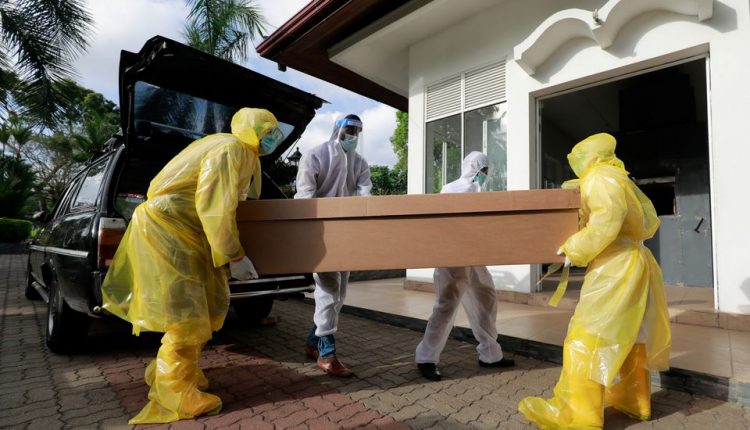Sri Lanka burial issue: president says Govt. will introduce laws allowing choice
COLOMBO — Days after extending an apology to Sri Lanka’s Muslim community on behalf of the government, for forcibly cremating their Covid dead, President Ranil Wickremesinghe said the government has decided to introduce new legislation allowing people to choose between burial and cremation.
Wickremesinghe admitting that the issue of burial for those who died of COVID-19 has been a significant concern for the Muslim community in the country, said guidelines on the disposal of Covid-dead provided by a separate committee appointed by the then government had deviated from the guidelines of the World Health Organization (WHO), creating problems and causing hurt feelings among the Muslim community.
He said the government has now decided to introduce new legislation allowing individuals to choose between burial and cremation according to their wishes. Additionally, provisions have been made for bodies to be donated to medical faculties if desired, he added, elaborating that the measures aim to prevent similar issues from arising in the future.
Wickremesinghe made these remarks at a religious service held on Sunday (23) at the New Kathankudy Grand Jummah Mosque for the people of Gaza affected by the ongoing Israel-Hamas war.
On June 18, the president apologized for the government’s decision to enforce cremations during the COVID-19 pandemic.
“This house would like to apologize for what happened,” Wickremesinghe said in Parliament, acknowledging there was a lot of pain at that time, felt mainly by the Muslims, but also Hindus, Buddhists and Christians who preferred burial to cremation of their loved ones.
He said a committee appointed to look into the matter at the time recommended cremation, a decision which the Supreme Court upheld.
“So the government had to follow that. There was no choice at that stage.”
The government’s stubborn insistence, under the presidency of Gotabaya Rajapaksa in 2020 and 2021, on cremating Muslim and Christian victims of the virus, going against their religious beliefs, drew widespread condemnation from UN experts, rights bodies and Muslim countries.
-economynext.com/ENCL



Comments are closed, but trackbacks and pingbacks are open.